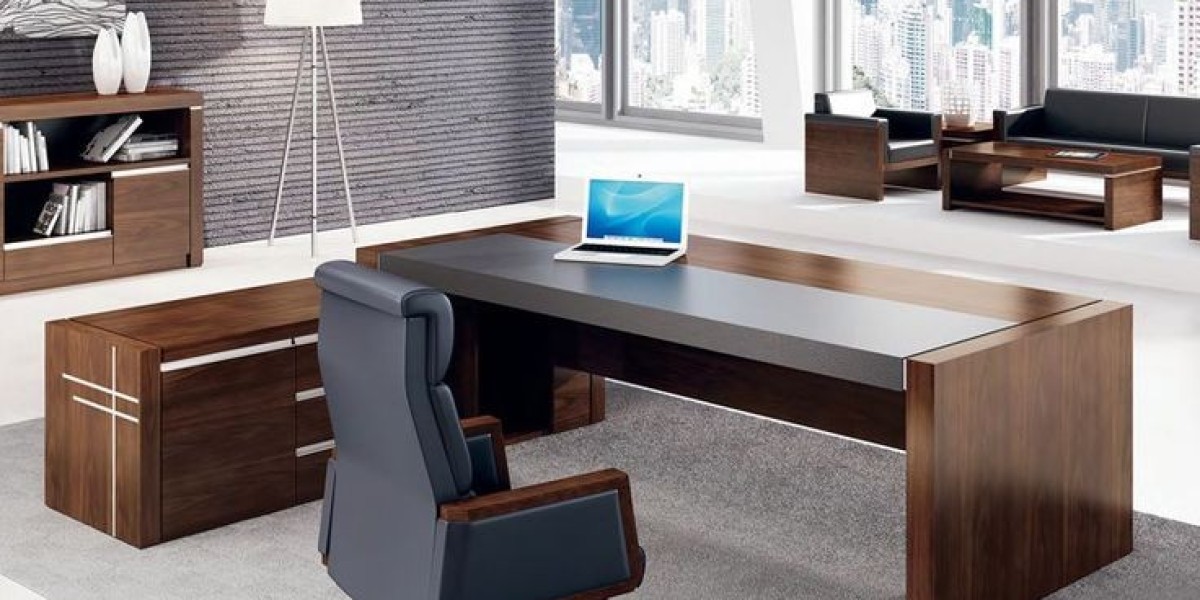The B2B office desk market is undergoing a profound transformation, driven by advancements in technology and evolving design trends. As businesses embrace more flexible work environments, technology integration and innovative desk designs are becoming critical components of modern office furniture. This article explores how technology and design are shaping the future of the B2B office desk market and influencing key market dynamics.
1. The Role of Technology in Modern Office Desks
As businesses increasingly adopt digital tools and hybrid work models, the demand for office desks that integrate seamlessly with technology is growing. The next generation of office desks will not just serve as work surfaces, but as smart, tech-enabled hubs that support productivity and enhance employee well-being.
Key Technological Trends Shaping the Market:
- Smart Desk Features: Office desks are becoming more intelligent with features such as built-in wireless charging, USB ports, power strips, and integrated cable management. These features reduce clutter and ensure that employees have easy access to the power and connections they need to stay productive.
- Ergonomic Technology: Height-adjustable desks, a popular ergonomic solution, are now being equipped with motors that allow users to easily adjust the height of their desks throughout the day. Additionally, some desks come with memory settings that allow users to save their preferred positions. These adjustments promote health by encouraging employees to switch between sitting and standing, thus reducing the negative health impacts of prolonged sitting.
- Health Monitoring Features: In line with growing concerns about employee wellness, some modern office desks incorporate health-tracking technology. These desks may include sensors that monitor posture or remind users to stand after sitting for too long, helping to reduce strain and increase overall productivity.
- Tech-Enabled Collaboration: Desks designed to support collaborative work are incorporating features that enable seamless communication, such as built-in speakers, microphones, and even digital screens for video conferencing. These desks are ideal for businesses that rely on teamwork and virtual communication, offering a hybrid solution for both in-person and remote work.
2. Design Trends: From Functionality to Aesthetics
While technology is central to the future of office desks, design remains a critical factor. Businesses today are looking for office furniture that is not only functional but also aesthetically pleasing and reflective of their brand. Office desks must serve both practical and visual purposes, creating an environment that fosters creativity, collaboration, and productivity.
Key Design Trends Influencing the Market:
- Modular and Flexible Desk Systems: Modular office desk systems, which can be easily customized and reconfigured to accommodate different working styles and office layouts, are gaining popularity. These desks can be adjusted as business needs change, whether it’s for an individual workstation, a collaborative team setting, or a dynamic hot-desking environment. Flexibility is key in adapting to the evolving work culture, including hybrid and remote work models.
- Minimalist and Clean Aesthetic: Modern office desks are embracing minimalist designs, focusing on clean lines and simplicity. Desks are being designed to blend seamlessly into open-plan office layouts, with understated styles that emphasize functionality without sacrificing aesthetics. This design trend appeals to businesses that want their workspaces to feel open, calm, and clutter-free.
- Ergonomics and Comfort: As the focus on employee health intensifies, desk designs that prioritize ergonomics are becoming essential. Desks are being designed with features like adjustable heights, ergonomic shapes, and easy-to-use controls. Comfort is no longer just a luxury but a key consideration, with companies increasingly investing in furniture that improves the physical and mental well-being of their employees.
- Personalization: As more companies focus on creating workplaces that reflect their brand and corporate culture, personalized office desk designs are becoming more popular. Customizable desks that allow businesses to choose materials, finishes, colors, and layouts are on the rise. Personalized designs can create a stronger sense of identity and help foster employee satisfaction and engagement.
3. Hybrid Work Environments and the Need for Versatile Desks
The growing adoption of hybrid work models, where employees split time between working remotely and in the office, is reshaping the B2B office desk market. In these flexible environments, businesses need desks that can adapt to different settings and workstyles. Desk solutions must cater to a wide range of needs, from individual focus work to group collaboration.
Impact of Hybrid Work on Desk Design:
- Multi-Functionality: Desks must be versatile enough to serve various functions. This includes the ability to transition from a solo workstation to a collaborative desk or team setup. Companies are increasingly investing in desks with modular components that can be easily reconfigured for different tasks, whether it’s for focused work, team discussions, or video conferencing.
- Space Optimization: As hybrid work leads to more flexible office layouts, space-efficient desks that can be folded, collapsed, or easily retracted are becoming more desirable. This helps businesses maximize their office space, enabling them to accommodate more employees in a smaller area, which is especially useful for offices with fluctuating headcounts or limited space.
- Mobile Desks: Mobile desks, which are easily moved from one location to another, are also gaining traction. These desks cater to the fluid nature of hybrid work environments, where employees may move between different workstations or settings. They are particularly useful in shared workspaces, hot-desking environments, and flexible office layouts.
4. Sustainability in Office Desk Design
As environmental concerns become a top priority for many businesses, sustainability is an increasingly important factor in office furniture design. B2B buyers are demanding products that reflect their commitment to corporate social responsibility (CSR) and the environment, prompting manufacturers to focus on sustainable materials and energy-efficient production processes.
Key Sustainable Trends in Office Desks:
- Eco-Friendly Materials: Manufacturers are turning to sustainable materials such as recycled wood, metals, and plastics, as well as non-toxic paints and finishes. This is in response to the growing demand for green office furniture that aligns with businesses’ sustainability goals.
- Circular Economy: A growing focus on the circular economy is prompting furniture companies to design office desks with longevity in mind. These desks are built to last longer, and they can be easily disassembled and recycled at the end of their lifecycle. This reduces waste and minimizes the environmental impact of office furniture.
- Energy-Efficient Production: Manufacturers are adopting more sustainable production processes, such as using less water, reducing carbon emissions, and optimizing supply chains. This helps meet both environmental regulations and the demand for eco-conscious products.
5. Global Market Dynamics and Regional Differences
While technology and design trends are universally shaping the B2B office desk market, regional differences in consumer preferences, business practices, and economic conditions will play a key role in how the market evolves globally. For example, in developed regions like North America and Europe, there is a strong focus on sustainability, employee well-being, and advanced ergonomic designs. In contrast, emerging markets in Asia-Pacific and Latin America may prioritize affordability, adaptability, and space efficiency as businesses rapidly expand and modernize their offices.
Regional Trends:
- North America and Europe: Companies in these regions are increasingly prioritizing sustainability and employee well-being, leading to a greater demand for ergonomic and eco-friendly office desks. Smart desks with health-tracking features and sustainable materials are particularly popular.
- Asia-Pacific: The rapid growth of urbanization and the expansion of businesses in this region is driving the demand for functional and affordable office desks. As hybrid work models gain traction, there is also a rise in demand for flexible and space-saving desk solutions.
- Latin America: With a growing middle class and increasing focus on office modernization, businesses in Latin America are investing in office furniture that combines affordability with high quality. The market here is poised for growth as more companies embrace modern workspace solutions.



